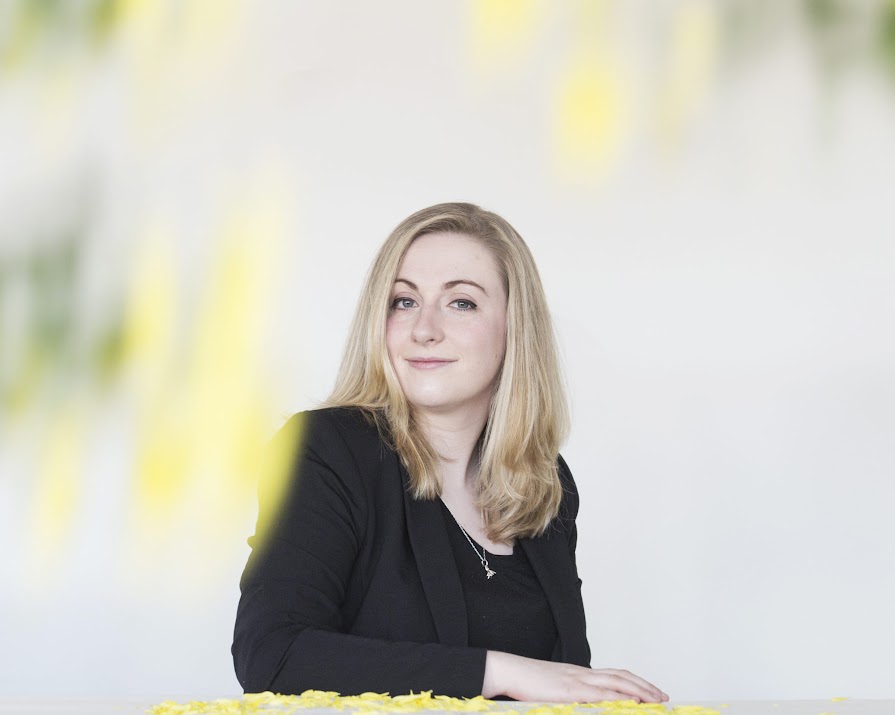By Meg Walker
20th May 2019
20th May 2019
We meet Cork-based entrepreneur Dr Fiona Edwards Murphy, co-founder and CEO of ApisProtect, which uses monitors placed inside hives all over the world that collect data and monitor the health of bees in order to protect the bee population worldwide.
How important is it that we ensure the protection of the bee population, and what are the challenges facing beekeepers?
Honey bees globally are experiencing a crisis, and we don’t appreciate just how important these little fluffy friends are to our daily lives. The UN has designated May 20 as World Bee Day to highlight the importance of honey bees as well as all the other bee species, and their role in ensuring global food supply.
Contributing €153 billion worth of pollination to the agri-food industry annually, honey bees play an essential role in global food production. One-third of all the food we eat depends on pollinators, and there are 91 million managed beehives worldwide. A failure to address the current decline in honey bees will significantly impact us all, as they play an essential role in global food production.
In many countries, up to 50 per cent of honey bees are dying every year. A host of problems, including diseases and pests, are devastating hive populations around the globe. This not only impacts beekeepers, but also our ability to feed current and future generations. Continued losses of honey bees will impact our ability to nourish and feed the predicted 9.7 billion people on planet earth by 2050.
How did you first become interested in working on this issue?
Throughout my career, I have always been really interested in utilising technology to solve issues that have impacted people’s daily lives. In 2012 and 2013, I saw how beekeepers all over the world were concerned about colony collapse disorder and how that affected bees, and wondered if anyone had looked into putting sensors into beehives.
A little bit of research showed there had been some work in the area, but nothing extensive, so I decided to focus my PhD there. After discussing my PhD in a radio interview, beekeepers all over Ireland and internationally started getting in touch, looking for this technology. I decided to start our company, ApisProtect, with my co-founders ?Dr Pádraig Whelan and Andrew Wood to see if we could bring this project to life.
Tell me about ApisProtect and the technology behind it?
At ApisProtect, we use sensors to monitor honey bees in the hive. We collect temperature, humidity, CO2, sound, and movement data from a single sensor unit installed inside the hive, called the ApisMonitor.
We collect data from beehives all over the world using a combination of different long-range networks to bring these data together on our servers. There, we use “Machine Learning” technology to process and convert overwhelming amounts of raw data into actual information a beekeeper can use.
The key value of this technology is the processed data – a high level overview of each apiary with a breakdown of which hives are doing well, which ones are likely to experience problems, and which hives currently need immediate attention, providing a 24/7 early warning system to help reduce honey bee losses. These sensors will help beekeepers identify a wide variety of problems, earlier than they can using traditional inspections.
Bees are under threat worldwide from a range of diseases and pests, a decline in biodiversity and a lack of wildflower access – our technology will help beekeepers manage their hives and keep their bees healthy.
I love introducing beekeepers to our technology. It’s amazing to watch them realise just how much the ApisProtect solution can change the way they work; when they’re sitting in their air-conditioned office and I show them what’s going on in their hives miles away – no need for long drives, bee suits, or working in the hot sun.
How is your new partnership with Inmarsat going to improve your technology and offerings – what do you hope to achieve in the next year now that this partnership is secured?
Many hives are situated in remote locations globally, and we needed a partner who could support our project with industrial IoT expertise and a variety of connectivity technologies.
Inmarsat is delivering highly reliable hybrid satellite/cellular and LoRaWAN technologies to ensure that we can provide services to beekeepers, no matter how remote their location. Additionally, the mobile nature of Inmarsat’s services mean that if hives need to be moved for pollination purposes, we can still continue to deliver hive data with minimal disruption.
Our beekeepers across the world can now check on their hives using their laptops or mobile phones, thus reducing the need to travel (sometimes long distances) to the hives, and relying on suitable weather conditions. Honey bees put a lot of work into maintaining the condition within their hive, and when you check on the hives in inclement weather, this causes them distress. The combination of our technology and Inmarsat’s connectivity will enable us to roll out our product commercially to beekeepers, regardless of how remote their location.
What efforts can the rest of us make in our daily lives to help the bee population?
It is fantastic to have events like World Bee Day and National Biodiversity Week to highlight the role honey bees and pollinators play in global food production.
We can all help our pollinators by planting more bee-friendly plants and trees in our roadsides, gardens, communities and cities. The All-Ireland Pollinator Plan 2015-2020 provides great tips for gardeners and organisations to help create a landscape where pollinators can survive and thrive.
What advice would you give to young girls as regards studying STEM and also following a career in which you can make a difference in the world?
I firmly believe technology should be compulsory in schools to ensure students are ready for the technology jobs of the future. Technology is now such a fundamental part of our lives – there are no jobs that students will grow up and do that won’t involve apps, computers, software and things like that, so it is vitally important that girls are studying STEM subjects to ensure they can have the best career to suit them in their future.
My motivation is that our technology is something that can make a difference to people’s lives, and that inspires me every day. I never thought my love of technology would create this career for me. I now get to work with a team developing cutting edge technology, meeting new investors and partners in Ireland and abroad, writing business plans and presenting and networking at conferences – every day is different, and I am enjoying it all.
If you do enjoy science and technology, follow this interest; it is such an interesting area to work in, with new developments all the time. We all use and benefit from technology every day; it will be fascinating to see the new technologies of the future and how they will make a difference to all areas in our lives. Who knew I would be travelling the world visiting almond farms and blueberry farms in America and South Africa, helping beekeepers keep their bees healthy and safe, and monitoring 10 million bees from my office in Cork?
For more information, visit apisprotect.com. Follow Dr Fiona Edwards Murphy at @Fedwards_























